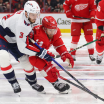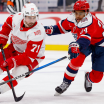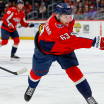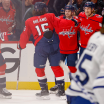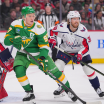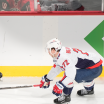Earlier this season, we posted a lengthy piece on Alex Ovechkin's early years in DC and another shorter piece on Nicklas Backstrom's five-year contract extension. In the process of crafting those stories and talking to the subjects themselves and many others, we were reminded of how exciting and thrilling the 2007-08 NHL season was in these parts.
Time CAPSule - Fedorov's Mentoring Pushes Caps Forward
Late-season addition of future Hall of Famer sparked Caps' group of wide-eyed "Young Guns" and rejuvenated his own career






